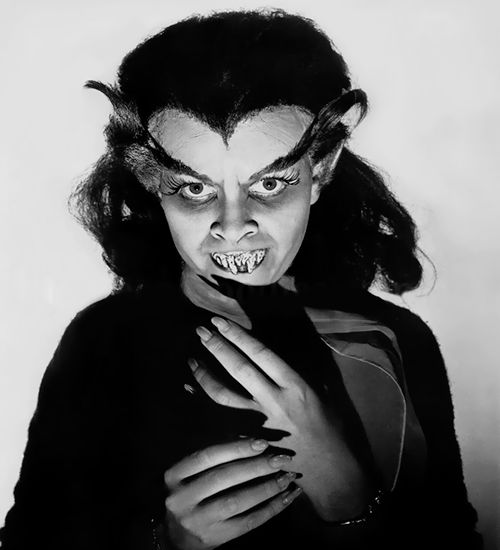Excerpt from piece on 1957's Blood of Dracula
- Colin Fleming

- Oct 7, 2024
- 2 min read
Monday 10/7/24
This is one of those horror films in which the monster is also the victim, but the teen/family saga version. Nancy is a cool kid and we like and pull for her. The sexual energy between the students is obvious. These aren’t just mean girls; they’re jealous girls, jilted lover types, lusty connivers. We talk about the patriarchy—well, some do—but the matriarchy depicted in Blood of Dracula doesn’t look so hot either, and Nancy is facing a lot of stacked decks as a result of systems and people in place.
There’s humor, which some would say is unintentional, but it works nonetheless. For instance, the boy employed as the school’s groundskeeper is forced by the girls to take turns dating each of them and we’re not sure whether he’s worn down on account of being over-sexed or because he’s overwhelmed by the job of dealing with these moody girls who sure know how to hit a nerve. The cops and coroners only start to figure out what’s going on because someone conveniently had a roommate once “from a small town in the Carpathian Mountains” and he sure told some stories. Meanwhile, the girls have a secret club—by which is really meant Sapphic Society—called “The Birds of Paradise,” and what an Eden of pearls it is, nudge nudge.
Despite its B-movie trappings, Blood of Dracula invites a deeper read. It’s a school fairytale of horrors and a movie about identity and growing up and needing people to help you who don’t. Nancy is fighting battles on all fronts, with no let-up. She’s a noble girl who tries to protect her boyfriend back home from who, and what, she’s become, but it’s just so hard to feel like you only have yourself.
The “kills” offer none of the catharsis of a victim extracting revenge or in the combating their attackers that we get with the brilliant pool scene of Tomas Alfredson’s Let the Right One In. They feel, instead, like acts committed without a young woman’s consent—that being Nancy—which, strictly speaking, is true. The ending must have been surprisingly down beat at the time. Justice isn’t served—or at least not much of it. Nancy’s trials are over, but where is the accountability?




Comments